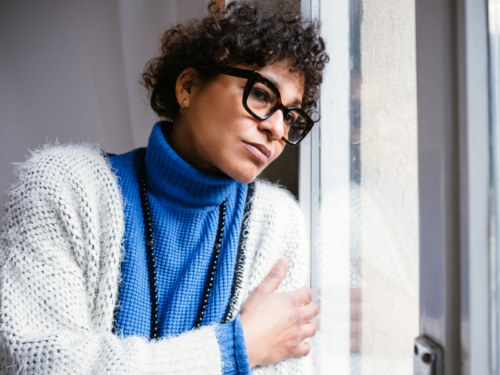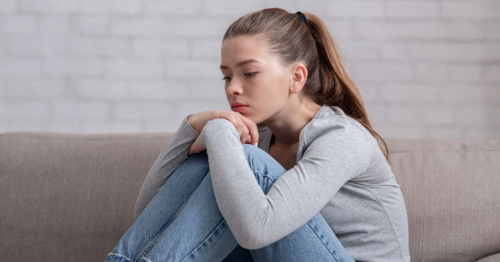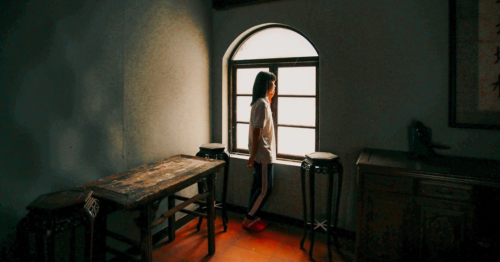
How to Cope with Seasonal Affective Disorder
Written By: Charlie Health Editorial Team
October 26, 2021
5 min.
Having both “regular” (or non-seasonal) depression in conjunction with SAD presents unique challenges, especially as collective trauma from COVID-19 mounts and the grieving process continues to be interrupted for many.
Learn more about our Clinical Review Process
We’ve talked about Seasonal Affective Disorder (SAD) on the Charlie Health blog before, but for winter 2021, we’d like to address how the ongoing mental health issues associated with the continuing COVID-19 pandemic intersect with SAD. Having both “regular” (or non-seasonal) depression in conjunction with SAD presents unique challenges, especially as collective trauma from COVID-19 mounts and the grieving process continues to be interrupted for many. While SAD is typically thought of as a product of decreased exposure to sunlight, which contributes to lower levels of serotonin and melatonin (essential hormones in regulating your sleep and mood) plus disruption to normal circadian rhythms, it can also be understood as a much more acute mental health issue that may require a higher level of care. News reports have highlighted how the pandemic has added an extra layer of stress and trauma to cases of SAD as winter approaches.
To begin to find a sense of balance during the winter months for those who may develop or have already experienced SAD in the past, it’s important to remember the signs (as we’ve written about before):
Signs of SAD include:
- Changes in sleep patterns, such as needing to sleep more during the day or being unable to fall asleep at night
- Changes in eating habits, such as sporadic or irregular snacking or cravings for denser, starchy, sugary foods
- Avoiding social gatherings, leaving your home, or spending time with people
- Feeling hopeless, unmotivated, directionless, or consistently sad
- Regularly stressed, anxious, or irritable (especially if loved ones point it out and notice, as well).
“Winter can be hard for a lot of people. And while people tend to think that kids and teens are inherently resilient, that’s not always the case. That also puts a lot of pressure on people who might be suffering from a mental health issue that is utterly rooted in outside circumstances. People with SAD need support and care. We can’t control the seasons, but we can do our best to be proactive in taking care of our mental health and support our loved ones,” said Dr. Caroline Fenkel, Chief Clinical Officer.
Ideas for how to cope with SAD
Plan ahead
schedule things that you know will make you happy and do your best to stick with them. Coffee with friends, a trip to the movies, a bundled-up walk outside. Getting out and about (even when you don’t want to) is an immensely helpful way to stave off SAD. Plus, the more sun exposure you get, the better.
Get a depression lamp
Special light bulbs in depression lamps are designed for people with SAD and help with regulating circadian rhythms during early morning and evening hours when the sun is still down.
Recognize your warning signs
Knowing when your ability to function normally starts to dwindle is key in determining when you may need to seek professional help for your mental health. If you do begin to realize that you would benefit from a higher level of care, reach out. It’s brave to ask for help when you need it, and it’s an act of love to support loved ones who may need your support in doing so.
Do you need more support with
your mental health?
Charlie Health can help.
Learn something new
Try a hobby you’ve always wanted to start. Learn a language, an instrument, a new craft, meditation…the possibilities are endless! Having a sense of routine with your new hobby will help too. Completing small tasks on a regular basis helps to develop healthy habits and can provide a regular boost of dopamine when you know you’ve accomplished your goal!
Pay attention to negative self talk
Studies show that when people notice and attempt to reverse their negative self talk, their mental health improves. Creating time to reflect is a great way to utilize extra time indoors.
Utilize virtual therapy and mental health treatment programs
Charlie Health is a completely virtual intensive outpatient program for high acuity patients. We have lots of experience with treating SAD along with other mental health issues in kids and teens. And during the cold winter months, the ability to access care from home is more important than ever.
Give yourself time to grieve
This is a specific way to fight the intersection of COVID-19 with SAD. Not only have millions of Americans lost loved ones to this virus, but many of us are also living with a continued sense of grief about lost opportunities, time with friends and families, global suffering, social injustices, and the loss of a sense of normal. Allow yourself to feel your feelings and remember that it is perfectly normal to feel sad, angry, confused, overwhelmed, or anxious. Feelings are a normal part of the human experience, especially in the face of a global pandemic nearing its second year. Winter can only make this harder to reckon with. Talk to your friends and family about your feelings. Grieving isn’t linear and if the winter months start to bring up more pandemic-related sadness, you’re not alone.
Need more support?
At Charlie Health, we are committed to a proactive (rather than reactive) approach to mental wellness. SAD can absolutely present alongside more acute mental health diagnoses, so it’s critical to seek help as soon as you feel your symptoms are interfering with your day-to-day life. And if you’re the loved one of someone struggling during the winter months, please reach out to us as well. As part of our virtual intensive outpatient program, we integrate regular family therapy and group sessions in order to build communication skills. These types of skills build a foundation of sustainable wellness blocks that help our patients and families talk about their struggles and mental health for the rest of their lives.





